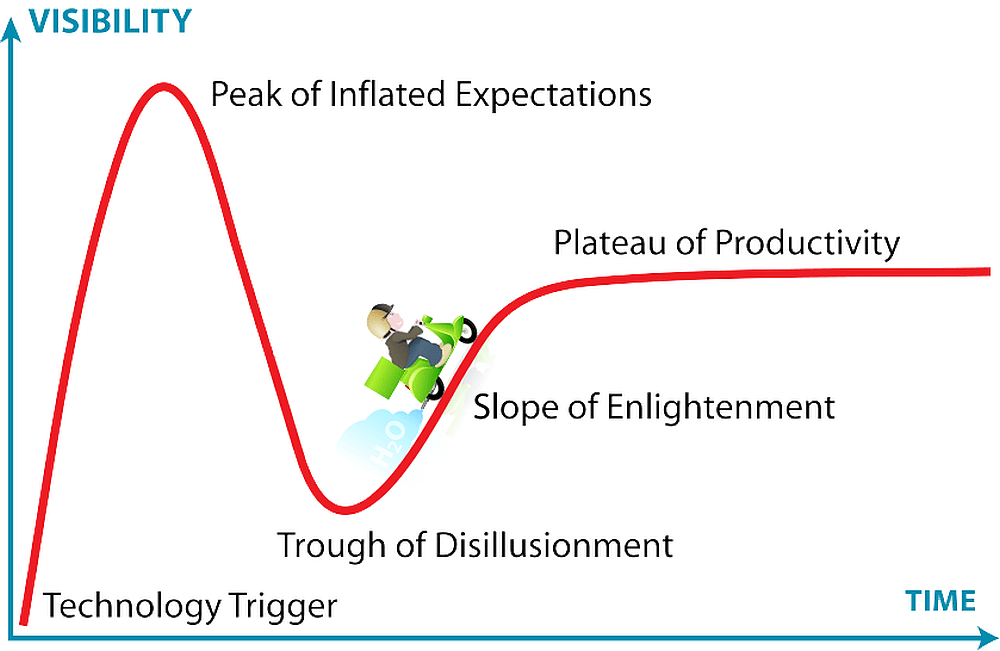[Image above] A workshop in July will consider the promise, progress, and funding priorities of solid oxide fuel cell technology. Credit: NETL.
The National Science Foundation uses workshops as a mechanism to bring together the nation’s best minds and research leaders to wrap a scientific community’s collective mind around complex issues. These workshops are not advisory. As I understand it, the NSF is not looking for recommendations on funding, but it does want to facilitate breakthroughs, cross-fertilization of ideas, and encourage new collaborations. NSF program directors usually drop in, too, and provide information on existing funding mechanisms, new programs, etc.
I’m not a researcher, but I’ve been able to sit in on a few NSF workshops. The format usually involves very short presentations by researchers to highlighting a specific aspect of their work. Part of what makes the workshops unique is the extended discussion sessions that follow the presentations. These are very stimulating with lots of questions and clarifications flying back and forth. The best discussions happen when scientists who might not otherwise be aware of each other realize they are attacking similar problems from different angles.
Sound interesting? Another NSF-sponsored workshop is coming up soon: Jason Nicholas, an assistant professor in the chemical engineering and materials science department at Michigan State University, is organizing a workshop on solid oxide fuel cells—”Solid Oxide Fuel Cells: Promise, Progress and Priorities Workshop.” The event will be July 11-12, 2013 in Arlington, Va., and will bring together a mix of people from academia, industry, and government to discuss ways to advance SOFC research and technology.
Why have a workshop now? Solid oxide fuel cell technology has been around for a while, but does not get as much attention—or support—as might be expected. On the website, Nicholas sketches out key achievements—the promise—of SOFC technology.
Despite major accomplishments in the development of SOFCs over the past decade (reducing SOFC operating temperatures from ~800°C to ~600°C, consistently demonstrating power densities in excess of 1W/cm2 at 600°C and above, reducing SOFC stack costs from >$1,500/kW to ~$150/kW, etc.), and increasing lifetimes from 15,000 to 40,000 hours, many challenges remain. For instance, improved SOFC materials properties and microstructures will allow low temperature (200-500°C) SOFC operation and the associated benefits of improved thermodynamic efficiencies, longer service lifetimes, rapid start-up times, and cheaper balance-of-plant costs.
Nicholas also captures some of the frustration felt by the SOFC community with the lack of priority, despite technological progress, and channels it productively into a justification for proactively championing SOFC research.
One thing which is clear, however, is that SOFC development in the United States has suffered from federal support that was inconsistent and/or dependent on tangentially related, politically sensitive clean-coal/FutureGen/SECA initiatives. With the scrapping of the DOE SECA program, the unjustified exclusion of SOFCs from President Obama’s “All-of-the-Above” Energy Policy, SOFC leadership slipping to Japan, the political disgrace accompanying the development of other energy conversion/generation/storage technologies (the bankruptcy of battery maker A123, the Dreamliner battery debacle, the failure of solar panel maker Solyndra, etc), the recent increase in domestic natural gas supplies, the continued worldwide use of hydrocarbons, and President Obama’s push to create a Clean Energy Security Trust, now is the perfect time for a Solid Oxide Fuel Cell Promise, Progress, and Priorities (SOFC-PPP) Workshop to re-evaluate the technical promise and funding mechanisms of SOFC research.
The workshop is organized into four sections, each with presentation and discussion format.
- The Promise of SOFCs
- Emerging Research Areas
- Industry Needs
- Technological, Funding and Political Factors Limiting Domestic and Global SOFC Research and Development
The workshop will include about 37 invited participants and about 13 self-nominated participants. NSF funding will cover a double-occupancy hotel room and airfare of up to $400 for domestic workshop participants. The deadline for applying as a self-nominated workshop participant is May 1, 2013. Please see the website for lodging, travel, registration, and workshop organizational details. The findings and conclusions of the workshop will be published as an open-access, peer-reviewed article in the Winter 2013 issue of Interface.
All interested parties are invited to contribute their ideas and suggestions via an online forum, regardless of whether or not they are participating.
Author
Eileen De Guire
CTT Categories
- Basic Science
- Energy
- Market Insights
Related Posts
Hype cycles: The uphill climb for hydrogen bikes
June 26, 2025



